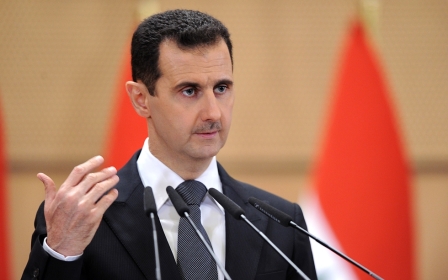Syria forced to deny Bashar al-Assad sick after stroke rumours

The Syrian government has denied that President Bashar al-Assad is suffering from ill health, saying he was "carrying out his duties quite normally".
Speculation swirled in recent days on social media and some Arab news websites saying Assad, 51, was in critical condition, citing rumours of stroke, or even that he had been shot.
"The presidency denies all these reports. President Assad is in excellent health," his office said in a statement on Friday.
"They (the reports) coincide with the changing circumstances in the field and politically," it said, without elaborating.
The denial comes days after Arab media reported Assad was suffering from "severe psychological strain" after more than five years of civil war.
The Saudi-owned al-Sharq al-Awsat last week published a column claiming that sources within the Syria government's main backer, Russia, said Assad was "exhausted" due to "psychological pressures" and had developed a nervous tic in his left eye.
Lebanese newspaper al-Mostaqbal al-Lubnani then reported that Assad had suffered a stroke and was in al-Shami hospital in Damascus under heavy guard.
Assad ally Russia and Turkey, which backs the rebels, hosted talks between the government and opposition in Kazakhstan last week, where they reaffirmed a shaky month-old ceasefire between the two sides ahead of a new round of planned peace negotiations in Geneva.
Assad had said before the Astana talks he was ready to discuss "everything," including his own position, within the framework of the Syrian constitution. His opponents have insisted throughout nearly six years of conflict that he must leave power under any peace deal.
But in the 17th year of his presidency Assad holds the upper hand in the Syrian war, bolstered by allies Russia and Iran whose military involvement has turned the conflict to his advantage.
The Syrian army and allied forces recaptured the strategic Wadi Barada area, home to the facility that supplies water to the capital Damascus, on Sunday, in another blow to rebels who have fought for years to unseat Assad.
Wadi Barada's recapture came weeks after rebel groups were driven from areas they held for years in east Aleppo, their last major urban stronghold. Taking full control of Aleppo represented Assad's most important win yet in a conflict that grew out of protests against his rule in 2011.
Swathes of Syria remain outside his control, including the Islamic State-held eastern province of Deir al-Zor, large areas of the north held by Kurdish groups, and pockets of rebel-held territory in the west.
The Moscow-led effort to revive diplomacy has emerged as ties between Russia and Turkey have improved.
Stay informed with MEE's newsletters
Sign up to get the latest alerts, insights and analysis, starting with Turkey Unpacked
Middle East Eye delivers independent and unrivalled coverage and analysis of the Middle East, North Africa and beyond. To learn more about republishing this content and the associated fees, please fill out this form. More about MEE can be found here.




